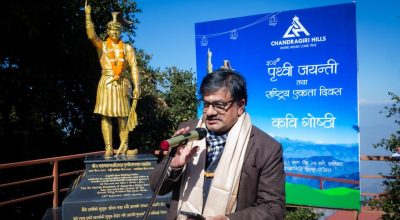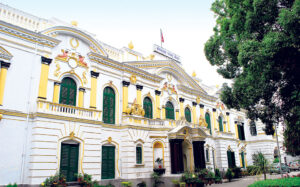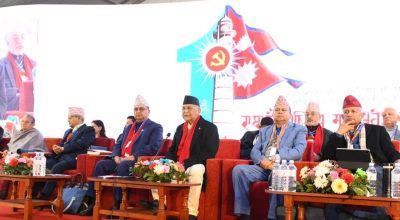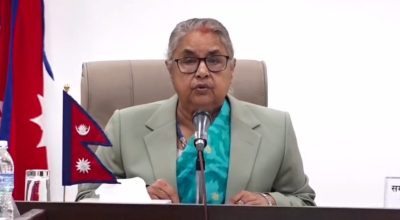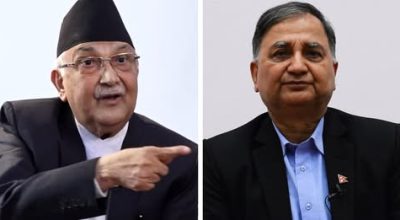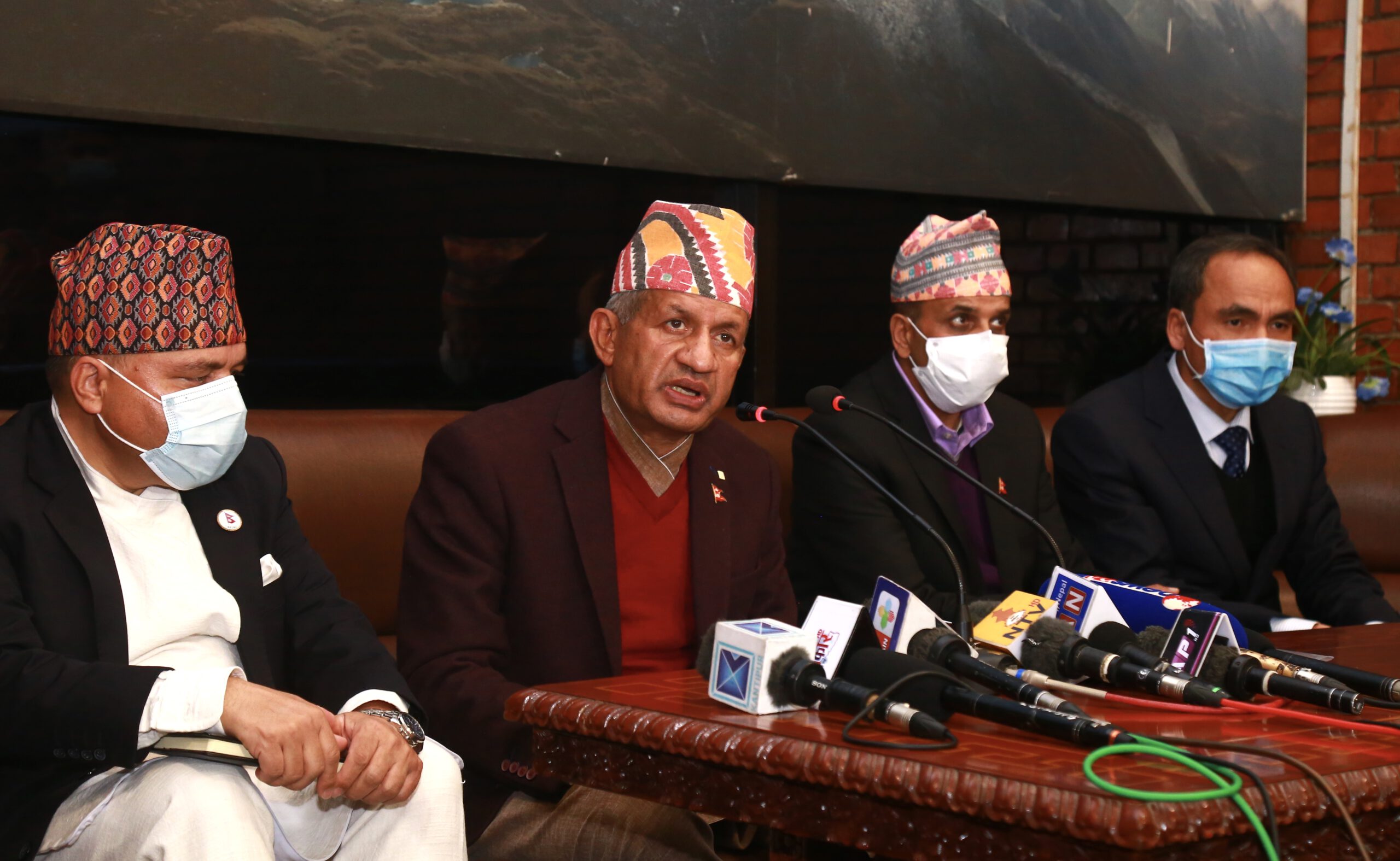
KATHMANDU: Nepal and India thoroughly reviewed the entire spectrum of bilateral relations including the significant areas of Covid-19 vaccine, boundary and border management, connectivity and economic cooperation, trade and transit, power and water resources, and culture and education.
Minister for Foreign Affairs Pradeep Kumar Gyawali who returned home from India visit on Saturday evening shared the information that remaining works on border issues would be begun soon and the talks on it in political level and meeting of the bilateral mechanism taken ahead together.
Upon his arrival at Tribhuvan International Airport, Foreign Minister Gyawali said, “Indian side was not only positive but also committed to concluding Nepal-India boundary issues.” He further said the talks held with Indian Minister for Defense Rajnath Singh underscored the need of extensive cooperation on bilateral defense, collaboration and cooperation between the two-country military and disaster management.
The sixth meeting of the Nepal-India Joint Commission was held in New Delhi on Friday. Minister Gyawali and his counterpart Dr. S. Jaishankar co-chaired the meeting as leaders of the respective delegations. The Joint Commission appreciated the close coordination between the two sides in facing the challenges posed by the Covid-19 pandemic.
The Nepali side thanked India for its assistance of essential medicines and medical equipment. On Nepal’s request for India’s support in availing Covid-19 vaccines, the Indian side assured that the requirements of Nepal would be in priority consideration after the roll-out of vaccines.
Similarly, the meeting discussed the boundary matter and expressed the commitment to early completion of the boundary works in the remaining segments. It also discussed the review of the Peace and Friendship Treaty of 1950, submission of the report of the Eminent Persons Group, and air entry routes.
The two Ministers expressed satisfaction over the progress achieved in increasing cross-border infrastructure and connectivity, strengthening of development partnership and expeditious implementation of major ongoing projects and initiatives, including the first cross-border petroleum products pipeline, Integrated Check Posts at major border crossing points, railway links, power transmission lines, upgradation of roads and motorable bridges. Also agreed in the meeting was to further speed up the implementation of the ongoing and planned bilateral projects such as the new Integrated Check Posts/Inland Container Depot, including at Dodhara-Chadani, remaining cross border railways, roads, and transmission lines, among others.
Moreover, the Embassy of Nepal in New Delhi stated in a press release that the Joint Commission deliberated on the progress in the discussions held between the two sides to review the bilateral treaties on trade, transit and rail services. Both sides agreed for an early conclusion of the review of Treaty of Trade, Treaty of Transit and the amendments to Rail Services Agreement with a view to further strengthen cooperation in these fields. Progress in operationalization of connectivity through inland waterways was also discussed.
The meeting agreed to expedite the work for 400 KV Butwal-Gorakhpur cross-border transmission line. Reiterating the importance of Pancheshwar Multipurpose Project and taking note of the positive discussion at the recent bilateral meeting of the Secretary-level delegations held in New Delhi, the Joint Commission agreed for early finalization of the project DPR. It also deliberated on the inundation problems facing people living in border areas especially due to non-tagging of embankments, interlinking of drains, and inadequate drainage provision.
The Nepali delegation to the meeting included Ambassador of Nepal to India, Nilamber Acharya; Foreign Secretary, Bharat Raj Paudyal; Secretary at Ministry of Health and Population, Laxman Aryal; and the officials of various ministries, departments and the Embassy.
The Nepal-India Joint Commission was established in 1987 with a view to review and further strengthen all aspects of bilateral relations.
On Friday itself, Minister Gyawali gave a talk at the Indian Council of World Affairs (Sapru House) on ‘Nepal-India Relations’ and interacted with the distinguished audience comprising former ambassadors, academics, think-tank analysts and media persons, among others.





